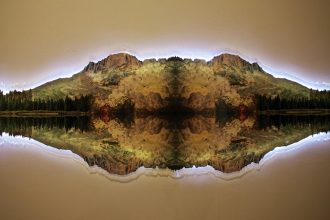Nigeria rests on a tripod of three major ethnic groups: mainly the Yoruba of the southwest, the Hausa of the north and the Ibo of the southeast. According to a Yoruba proverb, a pot of soup will not spill its content on a three-legged tripod. This tripod provides stability. But despite the wisdom of the proverb, there is a resurgence of ethnic nationalism. For instance, the Movement for the Actualization of the Sovereign State of Biafra (MASSOB) led by Ralph Uwazuruike formed in 1999. MASSOB is a secessionist movement with the aim of seeing the reinstatement of the defunct Republic of Biafra. MASSOB has received support from the leader of the Niger Delta People’s Volunteer Force (NDPVF) led by Asari Dokubo. At the occasion of Biafra’s Day celebration in May 2015,  Asari Dokubo said MASSOB will soon realise the dreams of an independent state. “We will soon complete the race. There is no need for you to be fatigued; the finishing line is not very far again. No power can stop our independence, our freedom is nearâ€.  [4]
The Movement for the Emancipation of the Niger Delta (MEND) is one of the largest militant groups in the Niger Delta, and claims to have a mission to expose the exploitation and oppression of peoples of the Niger Delta and the devastation of the environment by public-private partnership between the federal government and multinational oil companies operating there. The Economist described the organization as one that “portrays itself as political organization that wants a greater share of Nigeria’s oil resources to the impoverished region that sits atop the oil. In fact, it is more of an umbrella organization for several armed groups, which it sometimes pays in cash or guns to launch strikesâ€. [5]
Then we have the Oodua Peoples Congress (OPC), a Yoruba nationalist organization was formed by a group of elites, including Dr Fredrick Fashehun, to restore the annulled mandate of Chief Moshood Abiola, the presumed winner of  1993 presidential election. Despite winning the election fair and square, Moshood Abiola was barred from office. But this election, described as the freest and fairest in Nigeria’s political history, was annulled by the military dictator, Gen. Ibrahim Babangida. The OPC has since become a major force in Nigerian politics.
In the North, the Arewa Consultative Forum (ACF) is a pressure group which acts as an umbrella body for the peoples of the defunct Northern Region. It fights for the people of that region. The ACF was vociferous in the run up to the last general elections, insisting that the presidency should go to the north. With such a diverse ethno-political history within its borders, it is obvious that Nigeria is a nation of many nations.
Politics notwithstanding, the average Nigerian is  an exhibitionist par excellance. He loves to throw his weight around. He is larger-than-life. He makes his presence felt wherever he is found all over the globe. He easily spreads his wings and tends to draw people under his circle of influence. He does not suffer fools gladly. He is cocky; and a braggart. Even when he finds himself at the wrong side of the law, he would attempt to manouever himself out of the trouble with a brazenness that would shock many people.
Perhaps this brashness and cockiness of the Nigerian is due in large part to the fact that Nigeria is home to the largest concentration of black people in the world. According to Worldometers, Nigeria has a projected population of over 170 million people.[6]Â It is believed that one out of every five black men is Nigerian, including those who are part of the diaspora.
Whether in Reykjavik, New York, Paris, Milan, Moscow, Bangalore, Beijing or Durban, he walks tall with a swagger in his gait, his shoulders squared and his head erect. He is regal in his bearing and posture. He behaves as if he possesses the world.
A creature of good taste, he is always dapper and his attire is largely flamboyant. Even when imitating the Western style, he turns out in well-cut suits and designer shirts. He even makes a fashion statement with his traditional dress, in the form of a flowing gown or kaftan. In short, he is the epitome of sartorial elegance.
 Bibliography
[1]Â ‘Nigeria: Biafran Secession and Civil War, 1967-1970‘, World History
[2]Â ‘Nigeria Tops Happiness Survey‘, BBC News, 2 Oct. 2003
[3] ‘We Will Appoint Only Patriotic, Decent Nigerians as Ministers – Buhari‘, DailyPost Staff; Daily Post Nigeria, 27 July 2015
[4]Â ‘Biafra: MASSOB, Niger Delta group team up to actualise struggle’, The Sun Staff; The Sun online, 1 June 2015
[5] Risky Toughness: The army’s tough approach to Delta militants could end up uniting them‘, The Economist print ed., 20 Sept. 2008
[6]Â ‘Nigeria Population‘, Worldometers, 12 Oct. 2015
[7]Â ‘State Police and Scare Mongers (2)‘, Pini Jason; Vanguard News, 3 Sept. 2012
[8] ‘When a Statesman Rejects State Award‘, City Pages International, 2013
[9] ‘Nigeria: Lagos Assembly Rewards Airport Cleaner Who Returned N12 Million‘, Tunde Opeseitan; Daily Independent (Lagos). Viewed on  AllAfrica.com, 19 May 2015
[10] ‘At Last, Honour for a Hero‘, Imeh Usuah; ThisDayLive.com, 29 Sept. 2014




